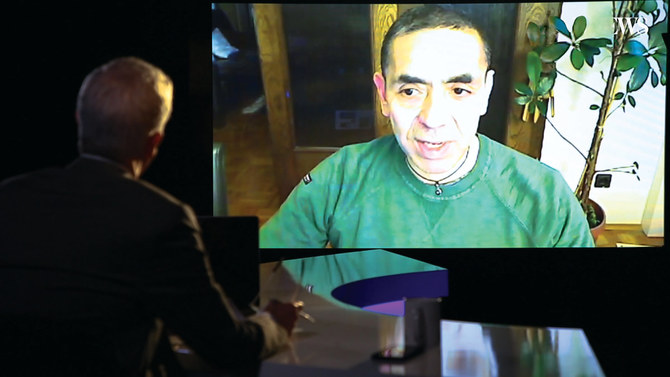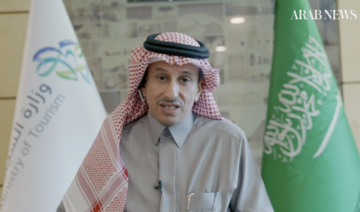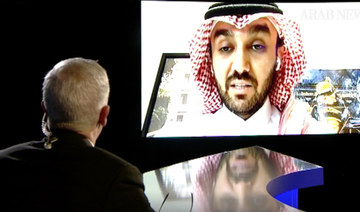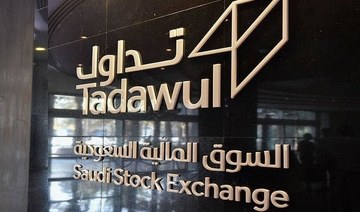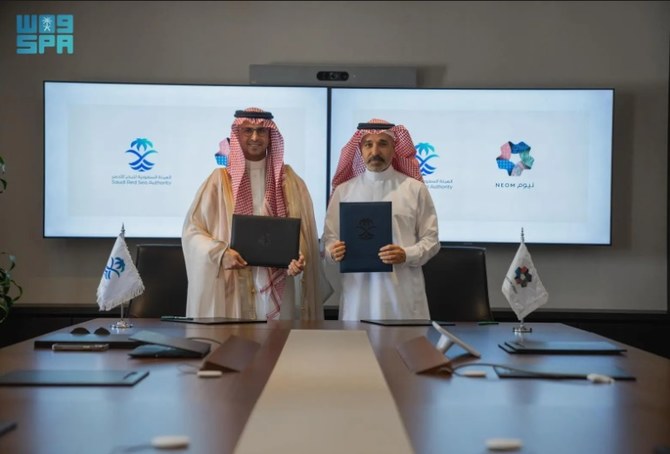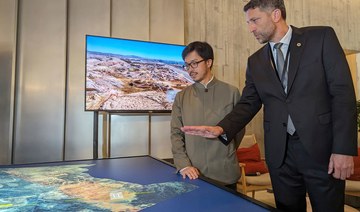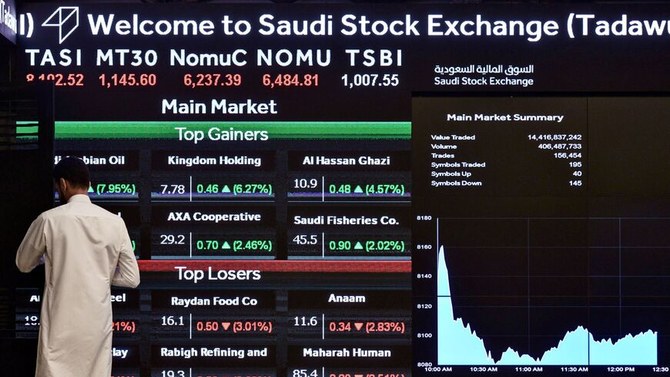DUBAI: The man who invented the first vaccine against the deadly coronavirus is prioritizing a cure for cancer as his post-pandemic target.
Ugur Sahin, the co-founder and chief executive of BioNTech, the firm which developed the earliest authorized vaccine in partnership with Pfizer, told Arab News that successful cancer treatment, using similar techniques he developed in the fight against COVID-19, was his next goal.
Sahin, who developed the vaccine along with his wife Ozlem Tureci, who is BioNTech’s chief medical officer, was appearing in the latest episode of Frankly Speaking, the series of video interviews with leading global policy-makers and business people.
“Definitely. The success now with our COVID-19 vaccine is of course transformative for the company, and we see that as a great opportunity,” he said
Sahin also spoke of the “next generation” of COVID vaccine his company is developing, the need for a fairer system of global distribution of the existing vaccine, and the possibility that the Pfizer-BioNTech vaccine could be manufactured in the Middle East.
BioNTech began life as a company focused on using revolutionary mRNA technology to develop new medical weapons in the fight against cancer, and Sahin said that was his next goal once the pandemic had been defeated. The success of the COVID-19 vaccine has proved a vindication of his methods, and given BioNTech the financial resources to pursue the cancer treatment.
“We see that as a great opportunity, and also an obligation to think in an even bigger fashion about our vision, and how we could accelerate our cancer program and make it more available,” he said.
Sahin, who is the son of Turkish immigrants to Germany, where BioNTech is based, revealed that a new version of the COVID-19 vaccine could be ready soon, one that is more easily transportable and which could deal more effectively with the more deadly variants of the disease that are appearing in different parts of the world.
“We started to manufacture our vaccine and it came at the beginning with a challenge. We have a vaccine which has to be kept at minus 70 degrees. It’s not yet suitable for supply to all regions on the planet,” he said.
“But we are working on better conditions. We have, most recently, published that we can also start at minus 20 and we will continue to work on that and our aim is really to make our vaccine available — 2 billion doses and maybe even more in 2021 — including not only developed countries but also developing countries.”
The “next generation” of the vaccine could be stored and transported at temperatures as high as minus 2 to minus 8 degrees, he said.
Sahin said that the existing vaccine was also expected to be effective against the South African variant of the virus, which is more transmissible and leads to higher fatality rates, but he added that there was still more testing to be done and data analyzed on the new variants.
Distributing the vaccine more fairly is a challenge, he admitted. “Fairness is always a question of logistics and also accessibility. Our goal when we started to develop this vaccine — and this is in the center of our hearts — is to make our vaccine available worldwide to everyone who needs it,” he said.
He also believes that a more innovative and entrepreneurial approach is needed to solve the problems of distribution of the vaccine to poorer parts of the world.
“We should really ask the question: How can we work together to make that possible?” Sahin said. “That's for some of the future goals, to really understand what are the limitations. For example, for the vaccine supply now, I really want to understand what is the limitation to make our vaccine available to people everywhere,” he said.
One of the key questions in the minds of economic and medical policymakers is when the increasing level of vaccination will begin to bring economic life back to normal after the damaging lockdowns of the past year. “it indeed depends on the rollout. We have this magic number of about 60 to 70 percent of people being vaccinated to start to see a herd immunity, but we are already starting to see the first effects of the vaccinations, with countries starting to vaccinate elderly people.
“So the first effect is that the hospitalizations are dropping in the vaccinated people and that's the first very important aspect — to get the reduction of hospitalization and mortality, and later on get also a better control of infections,” Sahin said.
On the problem of persuading people reluctant to have the vaccine, he said: “We have to continue to communicate the benefits we are seeing. This could help convince people.”
BioNTech partnered with US pharmaceuticals group Pfizer when the potential of its vaccine was in the early stages, optimizing the Americans’ global network for clinical trials, supply and regulatory know-how.
“So, we combined our skills and we are working together, driven by science. At the end of the day, we all want to accomplish the same: We want to develop the vaccine as soon as possible, we want to produce as much as possible, and of course we want to have a safe and effective vaccine,” he said.
Outside the US, the vaccine is manufactured at BioNTech facilities in Europe and transported internationally. A new facility in the German town of Marburg is being prepared to manufacture the vaccine in greater numbers, but Sahin explained the long and complex work required in setting up facilities overseas.
“It will take us about eight months until we will get out the first vaccines from Marburg. So, this is really the minimal time that would be required. It does not help in the early phase of the pandemic to set up new factories somewhere else. Every factory that we are now starting to consider will help us only in mid-2022,” he said.
The vaccine has been authorized and delivered early in Saudi Arabia and other parts of the Middle East, and two countries in the region — Israel and the UAE — top the world tables for the highest proportion of their populations already vaccinated.
Sahin said that the region could be the location of future manufacturing facilities, for the COVID-19 vaccine or for other, potentially more devastating viruses.
“What this pandemic taught us is very clear. It was somehow expected by experts, since more than 20 years, that this could happen. It happened and we were not well prepared, the world was not well prepared. This is a bad pandemic, but it's not the worst possible pandemic,” he said.
Sahin declined to comment on the qualities of rival vaccines available. “This is not a race. If it is a race, it’s against the virus, and I'm really happy about that,” he said.
“I had predicted that we will need multiple vaccine developers to participate and to ensure that everyone on the planet is able to get a vaccine, and this is happening.
“It is wonderful to see that all kinds of international collaborations have come up not only with one vaccine, but there are multiple vaccines.”
Sahin and Ozlem, who were named “People of the Year 2020” for their breakthrough in developing the first authorized vaccine, also joined the ranks of the world’s billionaires as the value of the company soared on news of the vaccine.
The founders of BioNTech have strong views on the value of philanthropy in the fight against life-threatening diseases, as rich and successful entrepreneurs increasingly donate a large proportion of their wealth to medical research.
“It is extremely important. We have to understand everyone can do something, and the way we would like to position our company is to become a useful company with a philanthropic vision. At the end of the day the question is: How can we ensure that the things we do are done for the benefit of humanity,” Sahin said.
“I don't see a clear reason why, for example, people living in Africa should not benefit from modern cancer treatments.”
_____________
• Twitter: @frankkanedubai



